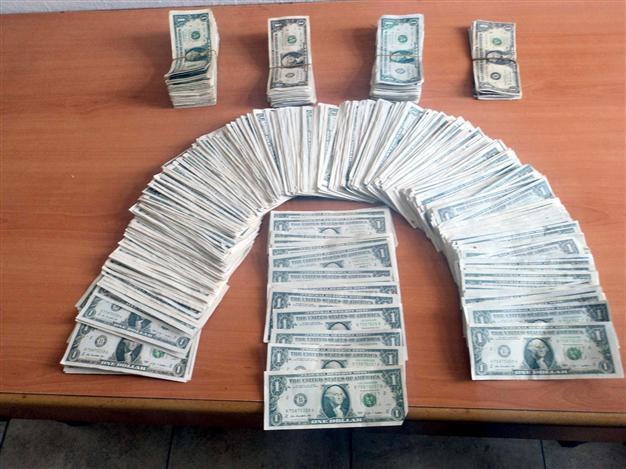Banks investigated for transactions over 2 million dollars in Turkey
ANKARA/ISTANBUL

The lira hit an all-time low of 1.9737 against the dollar on July 8. It rebounded after the Central Bank sold a record $2.25 billion of hard currency, and traded at 1.9430 on the morning of July 10. DHA photo
Turkey’s banking watchdog, the Banking Regulation and Supervision Agency (BDDK), said today it was probing foreign exchange deals by lenders between July 8 and 9, when the Central Bank made a series of high-volume auctions worth $2.25 billion.The BDDK has been looking into possible market manipulation, particularly among transactions over $2 million dollars, sources said, noting that while such oversight is normal, the recent moves were “abnormal” and could upset investors.
The BDDK told banks July 9 to ask for details of auction bids and for what purpose they had bought foreign currency between the mentioned dates, according to banking officials, Reuters reported. “They sought all information on when forex was bought, at what level and by whom on all transactions of more than $2 million,” said one bank executive familiar with the matter.
The BDDK reacted by saying this was a "routine" practice. “It is part of the BDDK’s duties to ask for information about all banking transactions. Our latest probe is no exception,” the BDDK said.
The Turkish Lira hit a record low of 1.9737 against the dollar on June 8. It rebounded after the Central Bank sold a record $2.25 billion of hard currency, around 5 percent of its net reserves, and was trading at 1.95 yesterday following six dollar auctions totaling $1.3 billion. The bank has now sold around $6 billion in one month to defend the lira; its last big move was in 2011, but it did not auction more than $1.5 billion on that occasion.
Turkey’s Capital Markets Board (SPK) launched a detailed probe into financial orders at brokerages, with a particular focus on foreign stock transactions between May 20 and June 19, when Turkey’s main stock exchange lost over 15,000 points.
This appeared as a “routine operation” regarding a period when extraordinary pricing is the case in the markets, SPK head Vahdettin Ertaş said just after the launch of the probe, adding that it was not routine in terms of the high volume of documents the SPK requested from the brokerages. Such moves present the risk that they will unsettle investors, sources close to the matter said. The results of that probe have not been announced yet.
The probes of the two market regulators have the characteristics of both “routine” and “non-routine,” according to some analysts. They are routine as the watchdogs are already responsible for overseeing the sectors and have the right to make detailed investigations. The latest probes, however, do not appear that routine to many, specifically in light of the Gezi Park protests in Turkey and Turkish Prime Minister Recep Tayyip Erdoğan’s accusations against something he called the “interest lobby,” suggesting that international capitalists were behind the demonstrations that have swept Turkey.
“The interest [rate] lobby exploited my country for years, but no longer,” Erdoğan said during a big public rally in early June. “I am telling this to some banks. You have started this fight, you will pay for it. Those who try to bring the stock exchange down, we will choke you,” he said.
The Turkish economy is at a greater risk now, mainly due to its structural weaknesses, particularly its high current account deficit, many economy experts have said.
The U.S. Federal Reserve’s (FED) latest decision to end liquidity has shaken nearly all emerging and developing markets, particularly those which have deep structural economic deficiencies, like Turkey, which is highly dependent on short-term loans.
The global exchange traded product market saw outflows of $8.2 billion in June alone as investors reacted to announcements from the FED that it may taper quantitative easing later this year. In this context, the attack on domestic and foreign investors is somewhat peculiar as Turkey is acutely dependent on portfolio flows at present.
















